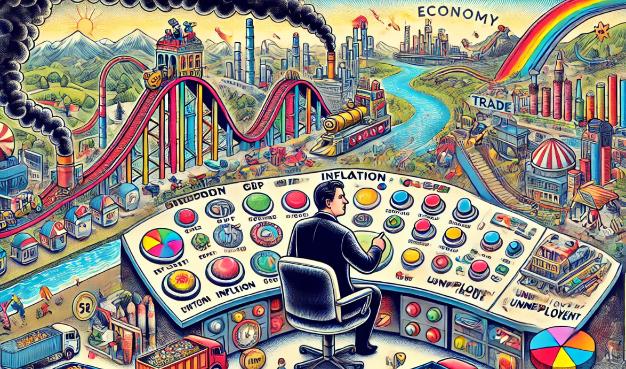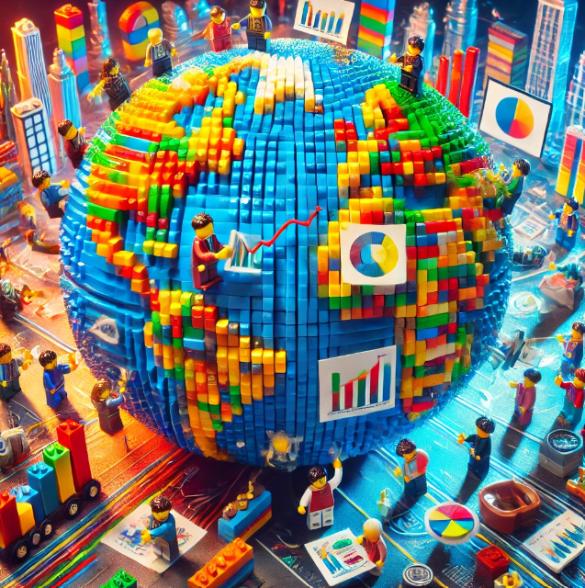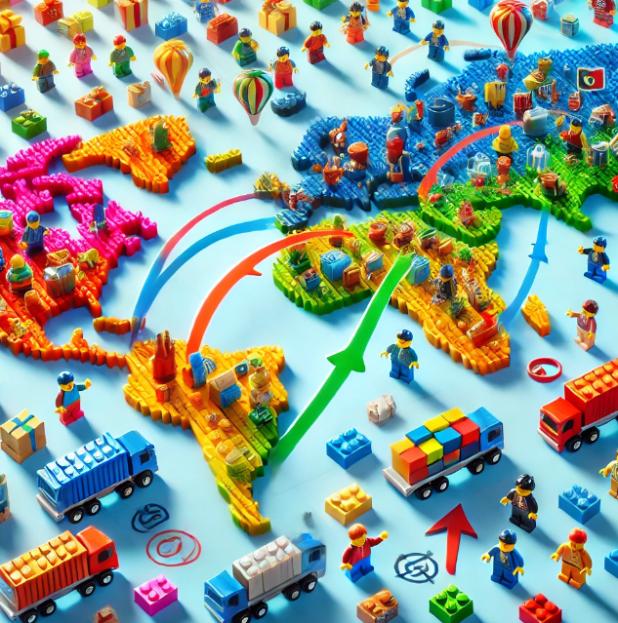IGCSE 0455 ECONOMICS
Unit 3 The Basic Economic Problem
What is IGCSE Macroeconomics?

READY FOR SOME IGCSE ECONOMICS?
IGCSE Economics Unit 1
The Basic Economic Problem
Cambridge 0455
IGCSE Economics Unit 2
Allocation of resources
Cambridge 0455
IGCSE Economics Unit 3
Microeconomics
Cambridge 0455
IGCSE Economics Unit 4
Macroeconomics
Cambridge 0455
IGCSE Economics Unit 5
Economic development
Cambridge 0455
IGCSE Economics Unit 6
International trade
Cambridge 0455
Why You’ll Love Unit 4 Macroeconomics IGCSE
Maybe you don’t care if the economy sucks right now! But you will as soon as you get a job because you’ll want the following things (guaranteed): investments that grow in value, basic items that don’t cost a fortune, affordable travel, and the confidence that the money in your pocket isn’t about to become worthless overnight. This is the beauty of the Macroeconomics unit for IGCSE! You’re going to get some insight into how to run and manage an economy. Not an easy job, as you’ll see. Why? Just look around—how many economies are actually performing well in 2025? Not that many!
IGCSE Economics Unit 4 is where the drama of the real world meets the classroom. This unit dives into the big-picture questions that define how economies operate and thrive—or sometimes fail spectacularly. From inflation spirals in Venezuela to the European Union grappling with rising unemployment, you’ll explore the tools governments use to control economies and the challenges they face in doing so.
This unit focuses on the broader workings of the economy, covering essential topics like unemployment, inflation, GDP, fiscal policy, and international trade. It goes beyond definitions and asks you to understand the real-world application of these concepts. IGCSE Macroeconomics is about answering tough questions: How do governments reduce unemployment without triggering inflation? What happens when a nation’s debt spirals out of control? Why do trade wars disrupt global supply chains?
One of the most exciting parts of Unit 4 Macroeconomics IGCSE is understanding economic growth and GDP. You’ll explore why some countries grow rich while others stagnate. Take China’s rapid economic expansion over the past two decades—it’s an example of how industrialization and trade can lift millions out of poverty. But rapid growth also comes with problems like pollution and inequality. Conversely, nations like Sri Lanka, which defaulted on its debt in 2022, show how poor management of resources and borrowing can lead to economic collapse.
Another key topic is inflation—when prices rise faster than wages. In countries like Turkey, where inflation reached over 80% in 2022, the cost of basic items skyrocketed, leaving citizens struggling to afford essentials. Inflation isn’t just numbers on a graph—it’s a real issue affecting people’s daily lives. In this unit, you’ll learn how governments try to control inflation using interest rates and monetary policy and why this can sometimes backfire, leading to recession.
The unit also tackles unemployment. You’ll explore different types of unemployment—cyclical, structural, and frictional—and the policies governments use to create jobs. Imagine a country like Spain, where youth unemployment has been consistently high, or the economic fallout of COVID-19, which led to job losses worldwide. Understanding the causes of unemployment helps explain why it’s such a difficult problem to fix, even in developed economies.
Ever wondered how governments decide where to spend money? Fiscal policy is another critical part of IGCSE Macroeconomics revision. Governments have to make tough choices, balancing spending on healthcare, education, and defense. During the pandemic, many countries spent trillions on stimulus packages to keep their economies afloat. But now, they’re facing mounting debt. Learning about fiscal policy will help you understand these trade-offs and their long-term consequences.
The world is interconnected, and Unit 4 IGCSE Macro explores how international trade impacts economies. Trade wars, like the ongoing tensions between the U.S. and China, show how tariffs and restrictions can disrupt global supply chains and lead to higher prices. You’ll also learn about balance of payments and exchange rates, which explain why some currencies, like the U.S. dollar, are strong while others, like the Zimbabwean dollar, are worthless.
Understanding IGCSE Economics Unit 4 gives you the tools to make sense of the headlines. Whether it’s the collapse of Lebanon’s banking system or the ongoing energy crisis in Europe, these are not just stories—they’re lessons in how macroeconomic policies affect millions of lives. More importantly, this knowledge isn’t just academic—it’s personal. Knowing how economies work will help you plan for your own financial future, whether that means choosing a stable career, investing wisely, or starting your own business.
This unit isn’t just about passing your exams—it’s about understanding the forces that shape your world. Revise Macro IGCSE with real-world examples of government decisions, economic collapses, and recovery strategies. Whether it’s the rise of India as a global economic powerhouse or the challenges of rebuilding Ukraine’s economy after war, IGCSE Macroeconomics brings these stories to life, making your studies both exciting and relevant.
Prepare to be fascinated. Prepare to think critically. Unit 4 Macroeconomics IGCSE isn’t just another chapter—it’s the story of how the world works.



